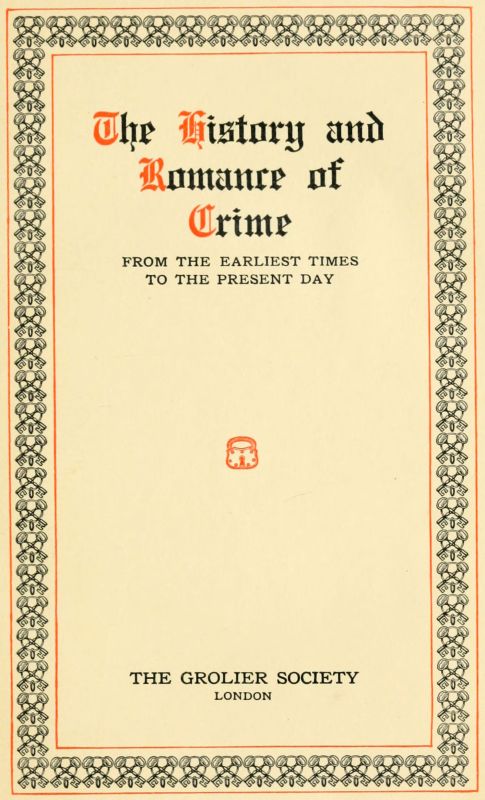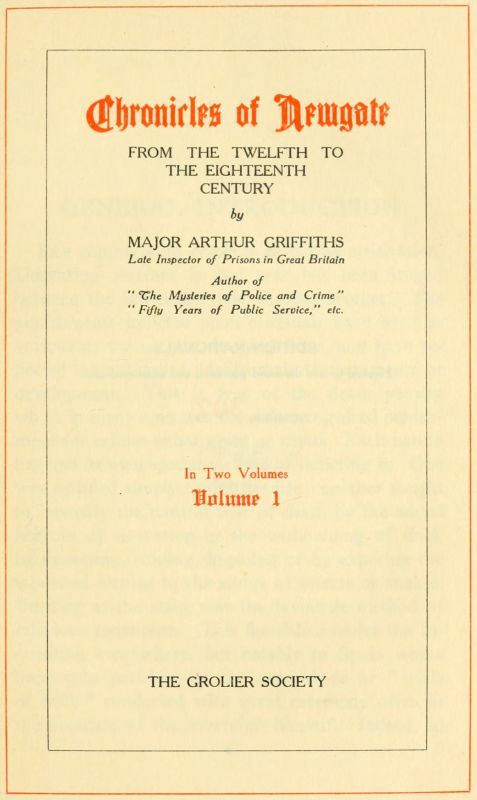
The History and
Romance of
Crime
FROM THE EARLIEST TIMES
TO THE PRESENT DAY
THE GROLIER SOCIETY
LONDON
The sympathies of the Quaker lady, Elizabeth Fry, werearoused by the sadly neglected condition of the women'squarters in Newgate in 1813. She formed the Ladies' Committeewhich secured many important reforms from Parliament. She wasa constant visitor to the old prison, where she brought hopeand comfort, and wrought great changes.

Chronicles of Newgate
FROM THE TWELFTH TO
THE EIGHTEENTH
CENTURY
Author of
"The Mysteries of Police and Crime"
"Fifty Years of Public Service," etc.
In Two Volumes
Volume 1
THE GROLIER SOCIETY
EDITION NATIONALE
Limited to one thousand registered and numbered sets.
NUMBER 307.
The combat with crime is as old as civilization. Unceasing warfare isand ever has been waged between the law-maker and the law-breaker.The punishments inflicted upon criminals have been as various as thenations devising them, and have reflected with singular fidelity theirtemperaments or development. This is true of the death penalty which inmany ages was the only recognized punishment for crimes either greator small. Each nation has had its own special method of inflicting it.One was satisfied simply to destroy life; another sought to intensifythe natural fear of death by the added horrors of starvation or thewithholding of fluid, by drowning, stoning, impaling or by exposing thewretched victims to the stings of insects or snakes. Burning at thestake was the favourite method of religious fanaticism. This flourishedunder the Inquisition everywhere, but notably in Spain where hecatombsperished by the autos-da-fé or "trials of faith" conducted with greatceremony often in the presence of the sovereign himself. Indeed, so[vi]terrible are the records of the ages that one turns with relief to themore humane methods of slowly advancing civilization,—the electr
